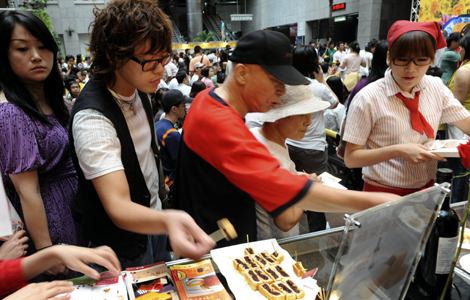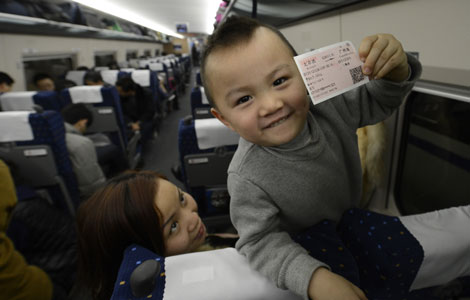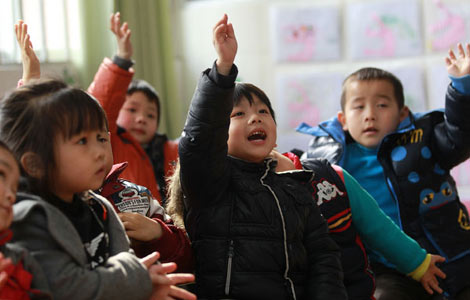Reform plans published for migrants' education
Updated: 2012-12-31 07:52
(Xinhua)
|
|||||||||
BEIJING - China's Beijing and Shanghai cities and Guangdong Province on Sunday published plans to gradually allow migrant workers' children to enter senior high schools and sit college entrance exams locally.
They are the latest in a total of 13 provinces and municipalities to formulate plans to ensure that rural children who have followed their parents to cities can enjoy the same rights as their urban peers in education.
Beijing will allow migrant workers' children to attend local vocational schools in 2013 and allow them to be matriculated by universities after graduating from the vocational programs in 2014, said a statement from the city's commission of education.
The eastern metropolis of Shanghai took a step further, saying it will allow migrant children in the city to enter local senior high schools, vocational schools and sit college entrance exams (commonly known as gaokao) locally starting in 2014.
Guangdong, a manufacturing heartland in south China and a magnet for migrant workers, has asked its cities to start recruiting migrant workers' children in local senior high schools in 2013.
The province will allow these children to sit gaokao and compete with local residents on an equal footing in college entrance starting in 2016, Luo Weiqi, head of the province's education department, told Xinhua.
Luo said the restrictions would be relaxed gradually and "step by step" as the province must solve the conflict between its gigantic migrant population and a scarcity of education resources.
Migrant workers, whose children could be benefited by the new plans of the three regions, must have residential permits, stable jobs and incomes, and meet other local requirements, according to the plans.
China's hukou, or household registration system, used to confine children to attending schools in their home provinces. A 2003 regulation amended this by allowing migrant workers' children to receive the nine-year compulsory education in cities where their parents work.
But the country has in recent years faced mounting protests from its migrant workers, whose children under current policies had to either return to the countryside for further schooling or risk dropping out of school if they chose to stay with their parents in cities where the parents work.
Earlier this year, the Ministry of Education asked Chinese cities to formulate plans before the end of this year regarding the further education and gaokao of migrant workers' children.
Official figures show that China has more than 250 million farmers-turned-workers living in cities. An estimated 20 million children have migrated with their parents to the cities, while more than 10 million are left behind in their rural hometowns.











